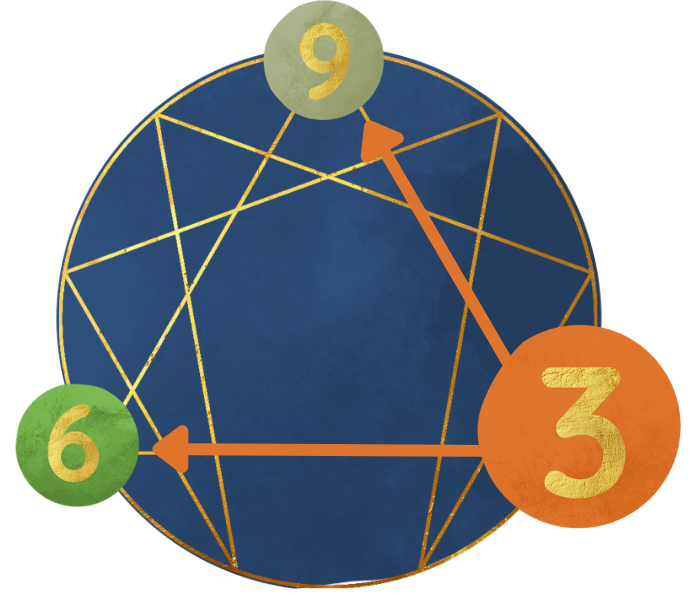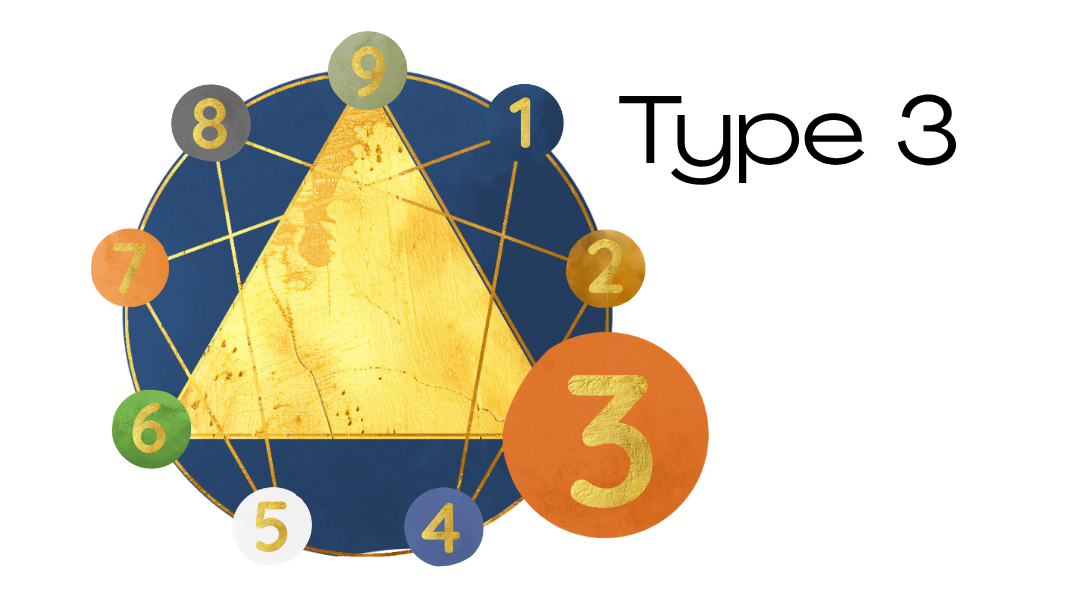
Threes strive to be the best and prove their value through achievement.
Enneagram Threes are driven by a core need to feel valuable and worthwhile. They pursue goals, adapt themselves to succeed, and seek recognition as proof of their worth.
Self Talk:
“The world values winners. I must succeed at all costs. I must avoid failure. I am what I do - to earn my place, I must be the best at what I do.”
Core Fear & Desire
- Basic Fear: Of being worthless
- Basic Desire: To feel valuable and worthwhile
Vice and Virtue
Vice – Deceit:
Threes may deceive themselves and others by presenting a polished image instead of their authentic selves. This habit protects their self-esteem but can create a deep sense of inauthenticity.
Virtue – Truthfulness:
When Threes embrace their true selves beyond performance, they connect honestly with others. Truthfulness allows for genuine self-worth, grounded in being rather than doing.
Developmental Path: From Performance to Presence
| Stage | Developmental View | Three’s Expression |
|---|---|---|
| Egocentric | “I am what I achieve.” | Over-identifies with success, hides vulnerability, performs constantly |
| Ethnocentric | “Success is identity.” | Ambitious, image-driven, values external approval |
| Worldcentric | “I have value beyond results.” | Reclaims emotion, integrity, and purpose beyond performance |
| Cosmocentric | “Reality unfolds through me.” | Acts in alignment with essence; grounded, truthful, and free from image |
Strengths of the Three
- Driven, competent, and success-oriented
- Strong ability to set and achieve goals
- Adaptable, focused, and results-driven
- Motivates others through confidence and vision
- Excels under pressure and delivers outcomes
Challenges for the Three
- Disconnects from personal feelings and needs
- Image-conscious or overly polished
- Emotionally disengaged or performative
- Difficulty slowing down or asking for support
- Anxiety and exhaustion masked by charm

Direction of Growth and Stress
Under Stress → Average Type Nine:
Threes may become passive, disengaged, or absorbed in busywork. They lose focus and energy, withdraw from others, and become resistant to help.
In Security → Average Type Six:
Threes become more open about their doubts and vulnerabilities. They let go of image maintenance and develop deeper, more cooperative relationships built on trust.
The Type 3 at Work
Chief Asset: Achievement. Threes bring confidence, focus, and efficiency to their work and inspire others to perform at their best.
How They Approach Problems:
“Let’s just concentrate on getting this done.”
Workplace Belief:
“Things work best when I’m given a chance to shine.”
What They Appreciate in Others
- Competence
- Efficiency
- Recognition of excellence
What Frustrates Them in Others
- Failure or underperformance
- Emotional complexity
- Lack of appreciation for results
How They May Frustrate Others
- Self-promotion and image focus
- Impatience or abruptness
- Inauthenticity or lack of transparency
How They’re Often Seen by Others
- Positive: Ambitious, results-driven, charismatic, effective
- Negative: Overly image-focused, impatient, disconnected, or inauthentic
The Competitive Achiever as a Leader
Strengths:
- Leads through performance, vision, and high standards
- Sets an example through excellence and execution
- Inspires action through visible results
- Focuses on measurable goals and impact
Challenges:
- Overidentifies with results and status
- May ignore team needs in pursuit of success
- Can be overly competitive or dismissive of emotion
Where They Shine: In the spotlight, leading with clarity, confidence, and momentum
Leadership Development Tip:
Reconnect with your values beyond productivity. Create space for reflection, emotion, and presence—not just progress.
Derailers to Watch For
- Spin and Wanting to Look Good: Presenting only the best parts to maintain image
- Taking on Too Much: Overcommitting to prove value
- Not Seeming "Knowable": Becoming hard to connect with due to shapeshifting
- Seeking Recognition: Performing for applause rather than purpose
- Individual Contributor Syndrome: Prefers personal output over team development
Growth Invitations for the Type 3
- Recognise your worth beyond what you achieve
- Practice pausing and letting others contribute
- Name your real desires and let them guide you
- Let go of the need to impress everyone
- Reflect on whether your actions are aligned with your deeper truth
- Experiment with showing up authentically, not perfectly
Keep Growing
Free Subscription
You’re already doing a lot—make sure it’s you that’s showing up.
Your Type Is Showing, is a type-based email series delivering weekly insights to help you turn striving into grounded authenticity and genuine presence.











